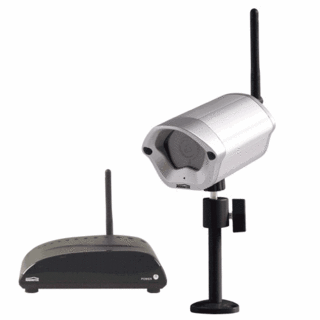Marked differences in the stages Europe's various national administrations have reached in moving towards e-government are highlighted in a new report from ICL.
Published:
6 December 2000 y., Wednesday
Although the majority of European governments believed that the offering of services via the Internet will result in future savings, none could offer timescales or a plan for when and how these savings would be achieved. The report from the leading e-business services company also draws attention to the lack of planning European governments have put in place for the changes that delivering services on-line will entail.
None of the governments interviewed for the report, "Europe's readiness for e-government", had developed full change management plans that revealed how they aimed to restructure and redistribute their resources.
ICL called on European governments to fully consider the costs and savings of e-government in light of its report and to ensure that e-government strategies are supported by effective change management plans. The report examines the e-government targets set in the EU's e-Europe 2002 action plan, and looks at how each country is progressing towards reaching the targets set for electronic service delivery.
It highlights initiatives that are already taking place around Europe in the move to e-government. Finland, for example, has launched 76 e-service projects and is confident it enjoys "big" cost savings, whilst other initiatives include the UK's heavily used open.gov.uk information portal (http://www.open.gov.uk/) and Greece's on-line tax forms. But "ICL believes that too many of the benefits are seen as isolated initiatives and that integrated, properly costed plans for the move to on-line government are lacking," said George Hall, director of corporate affairs at ICL.
Šaltinis:
electricnews.net
Copying, publishing, announcing any information from the News.lt portal without written permission of News.lt editorial office is prohibited.
The most popular articles
Software company announced new structure_ of it_s business.
more »
 Just a few weeks ago, the world's tiniest video camera was as small as a grain of rice. Today, the world's NanoEst camera is even smaller.
more »
Just a few weeks ago, the world's tiniest video camera was as small as a grain of rice. Today, the world's NanoEst camera is even smaller.
more »
 During the experiment two research groups managed to overcome a symbolic 100 TB/s optical fiber data transmission speed limit.
more »
During the experiment two research groups managed to overcome a symbolic 100 TB/s optical fiber data transmission speed limit.
more »
 Apple’s long–awaited online storage service for iTunes could be named iCloud, if only rumours are to be believed.
more »
Apple’s long–awaited online storage service for iTunes could be named iCloud, if only rumours are to be believed.
more »
 The founders of video-sharing site YouTube have bought bookmarking service Delicious from Yahoo.
more »
The founders of video-sharing site YouTube have bought bookmarking service Delicious from Yahoo.
more »
 The successful raid by hackers on Sony’s PlayStation Network is already being ranked among the biggest data thefts of all time.
more »
The successful raid by hackers on Sony’s PlayStation Network is already being ranked among the biggest data thefts of all time.
more »
 Apple has denied that its iPhones and 3G iPads have been secretly recording their owners' movements.
more »
Apple has denied that its iPhones and 3G iPads have been secretly recording their owners' movements.
more »
 Customers who have waited nearly 10 months for the white version of the iPhone 4 won’t have to wait much longer. The Great White iPhone 4 is finally here.
more »
Customers who have waited nearly 10 months for the white version of the iPhone 4 won’t have to wait much longer. The Great White iPhone 4 is finally here.
more »
 Researchers at Georgia Tech University are teaching a robot the basics of dialogue. Named "Simon", the robot has already been taught how to attract a person's attention but eventually, it's hoped he'll be able to interact and converse with humans in daily life.
more »
Researchers at Georgia Tech University are teaching a robot the basics of dialogue. Named "Simon", the robot has already been taught how to attract a person's attention but eventually, it's hoped he'll be able to interact and converse with humans in daily life.
more »
 3D? Terribly lame when it's tossed into devices as a bullet point feature. Trimensional for iPhone takes a picture of your face and maps your mug in a 3D model.
more »
3D? Terribly lame when it's tossed into devices as a bullet point feature. Trimensional for iPhone takes a picture of your face and maps your mug in a 3D model.
more »
 The European Union is to investigate whether internet service providers (ISPs) are providing fair access to online services.
more »
The European Union is to investigate whether internet service providers (ISPs) are providing fair access to online services.
more »